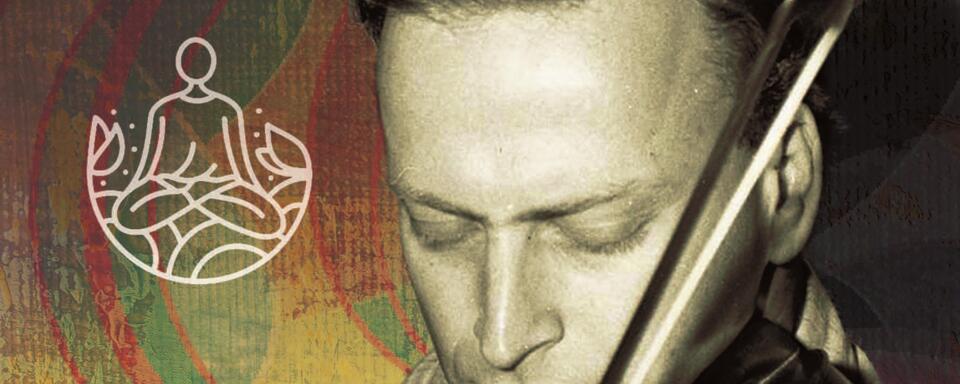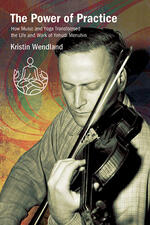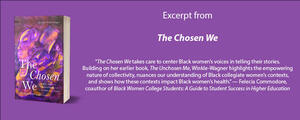
What is So Powerful About The Power of Practice?
Guest post by Kristin Wendland, whose new book The Power of Practice: How Music and Yoga Transformed the Life and Work of Yehudi Menuhin is now in paperback.
Anyone who excels on a musical instrument, in a competitive sport, or with any kind of challenging physical discipline knows practice is the key to mastery. But the term “practice” goes beyond the meaning of the physical repetition needed for training the body. I use the word in my book to describe how one applies mental disciplines and spiritual principles in their life and actions to embrace a holistic body/mind/spirit meaning. In this sense, the power of practice in Yehudi Menuhin’s two disciplines of music and yoga transformed his life and work.
In 2001, when I first began to get serious about practicing yoga, I bought B. K. S. Iyengar’s book Light on Yoga. In 1966, Iyengar was one of the modern world’s most important yoga gurus, and he had written a guide for aspiring yoga practitioners. I wanted to dig in and study for myself what the great guru had written. As I dutifully opened the book to the front matter, I gasped in surprise at the heading, “Foreword by Yehudi Menuhin.” Wait, Yehudi Menuhin? The world-famous child prodigy and concert violinist? I still had some old LP recordings of his from the 1970s. What did Menuhin have to do with yoga, and why did he write the foreword to this book, considered by many to be the Bible of yoga? I eagerly read on.
It turns out that the great violinist had been practicing yoga and studying with Iyengar for fifteen years by the time he wrote that foreword. I would later find out that Menuhin, in addition to being one of the most famous musical geniuses of the twentieth century, was also one of the earliest and most influential practitioners of yoga in Europe. Menuhin had first discovered yoga in 1952, before it was widely practiced in Europe or the United States, and he was instrumental in bringing yoga and the work of B. K. S. Iyengar to the West. His brief two-page foreword gave me insight not only into the practice as taught by Iyengar but also into the practice of one of the world’s greatest musicians, something that spoke to me strongly as a musician myself.
Menuhin represents a notable example of someone who embodied many yogic principles in his life and work. In addition to applying yoga to his violin practice and his personal approach to well-being, Menuhin found ways to integrate the discipline into his influential work as a musician and humanitarian. In my new book, The Power of Practice: How Music and Yoga Transformed the Life and Work of Yehudi Menuhin, I hold up Menuhin as a relevant case study to show how people can draw on such connections for their own paths of holistic well-being. I wrote it because I thought others might need a champion like Menuhin in their lives, especially in our politically polarized and spiritually fragmented world.
Although he was born over a hundred years ago and launched an early and brilliant career that spanned the 1920s to the 1990s, Menuhin’s story remains relevant today. His search for meaning and his spiritual quest resonate in our fast-paced and technology-driven twenty-first century. As his achievements and contributions to music and our world went well beyond correcting his violin technique through yoga, may we be inspired by the power of his practice to achieve such levels of competence, creativity, and health. And to those who also practice this now-popular discipline, may you also feel called to action, apply lessons learned on the yoga mat into your own daily life, and acquire the sattvic qualities that Menuhin exhibited. If we can harness such positive yoga energy, we can channel it as a powerful force for goodness as Menuhin did; we can effect positive changes in our world; and we can protect and heal our planet and people as we unleash a universal power of love and devotion.
Kristin Wendland is Teaching Professor in the Department of Music at Emory University. She is the author (with Kacey Link) of Tracing Tangueros: Argentine Tango Instrumental Music.

